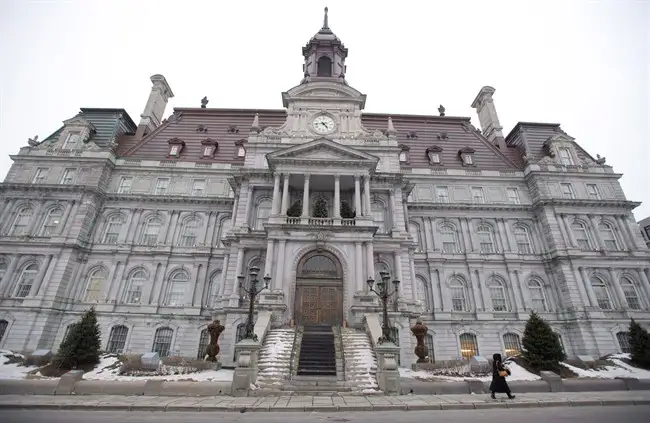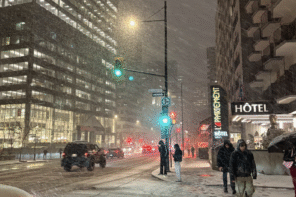On November 2nd 2025, Montrealers will vote for their next mayor. Montreal is an exceptionally vibrant city that breathes arts and culture, and local politics play a huge role in either facilitating or hindering the growth of its communities.
Historically, municipal elections have had a low turn-out with a mere 38.32% attendance in 2021, despite its incredibly direct impact on our every-day experiences. Projet Montréal has been in office for the last two terms, led by Valérie Plante who chose to take a step back from politics. The three main parties in the running are 1) Projet Montréal, now led by Luc Rabouin, their current official opposition, 2) Ensemble Montréal led by Soraya Martinez Ferrada, as well as 3) Transition Montréal led by Craig Sauvé. As the political pendulum tends to swing, it is no surprise that Ensemble Montréal is presently ahead in the polls. The main issues on this year’s ballot are the housing crisis, transportation infrastructure, nightlife and noise complaints, and consultation.
With an extensive background in management, Rabouin has only been in politics for 5 years but has served as the city’s Executive Committee’s Chair and is now the mayor of the Plateau-Mont-Royal borough. From the beginning of his campaign, he has been trying to distance himself from Plante while staying true to Projet Montréal’s core mission of turning the city into an ecological and cultural hub.
While all Montréal municipal parties are arguably on the left side of the political spectrum, Ensemble Montréal leans most to the right. Ferrada is a career politician who has served as a municipal councillor for Saint-Michel, as well as a federal Liberal MP and minister. One interesting accomplishment is her contribution to organizing the Sommet de la culture which would lead to the creation of the Quartier des Spectacles, a staple for Montreal’s artistic and cultural scene.
Transition Montréal, which can be described as a social democratic municipal party, is still significantly behind on polls but has gained enough traction to be part of the conversation. Sauvé is currently city councilor and deputy mayor for the Sud-Ouest borough, he has also been a member of Projet Montréal and has run as an NDP candidate. Interestingly for McGillians, he worked with CKUT 90.3FM, our McGill based community radio station, from 2008 to 2011.
Given that Montreal is not a particularly divided city, it makes sense that the two main parties actually have quite similar priorities. Most agree on regulating Air-bnbs and short term rentals, building socialized housing and generally prioritizing reducing housing prices. Their approaches diverge in that Rabouin’s party plans to negotiate with unions and non-profits while pushing for the funding of non-market housing projects, while Sauvé will likely prefer to work with private developers to target permit delays and tax rates.
Regarding transport, Rabouin’s plan is clear: to continue to invest in our bike path network, but also improve the city’s bus network. Sauvé, on her end, wants to use AI to audit the existing bike lanes and remove any that are deemed unsafe and to plan future road construction work. While her campaign doesn’t fully neglect public transportation, it certainly pays more attention to car infrastructure than that of other candidates. The Gazette writes, “a recent study found 97.68 per cent of Montreal road space is occupied by cars, yet everyone feels oppressed by bike lanes,” and Sauvé’s campaign capitalizes on this misdirected frustration.
Montreal bars and music venues have been suffering from unreasonable noise complaints and police intervention enacted through controversial bylaws, which threatens the bustling nightlife the city is known for. It is relevant to note that this is mainly an issue in the Plateau-Mont-Royal, Rabouin’s borough. To tackle this issue Ensemble Montréal proposes directing all noise complaints related to commercial activity to a new administrative unit rather than the police.
Finally, the issue of consultation arose because business owners were upset about some decisions made by the Plante administration (such as eliminating parking spots to build bike lanes) without their knowledge or approval. This prompted candidates to emphasize their commitment to consultation and participatory politics. Sauvé even made her slogan “Listen and Act,” a pledge to actively consult and listen to Montrealers’ concerns.
It seems quite clear where this election is headed. One 25-year-old Montrealer commented, “I just want someone who will prioritize the economy.” Plante’s administration has a reputation for being “anti-business” and prioritizing bike lanes over the economy as the city faces a housing and homelessness crisis. Put into context, however, labeling a municipal administration as economically inefficient when it was hit by a pandemic and a housing crisis that is not unique to Montreal may be somewhat misguided. Real estate is still significantly more affordable here than in other comparable Canadian cities such as Vancouver and Toronto.
Local politics get a lot less coverage and are therefore harder to keep track of than provincial or federal politics. Still, the most recent debate from October 15 with the two major party leaders is a good resource, as well as the Municipal Election Debate to be hosted in the SSMU Ballroom October 27 at 3pm. If you love to complain about the STM, construction on Saint-Catherine, and the price of rent in the Plateau, consider putting that energy to good use and showing up to vote!








